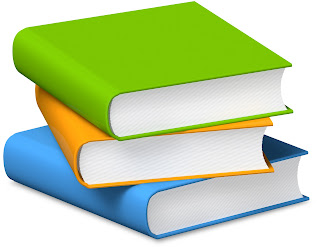What's So Great About Reading?
But look what I get that's positive.
I learn stuff. From the time I was a kid, I found books that taught me things. The library at school had biographies of famous people, and I discovered they were mostly just people. The encyclopedias my mom bought at the grocery store (with stamps or something similar) were filled with articles about animals, exotic places, and historical events. I recall that when my brother was born, my parents apparently thought I was too young to understand why he didn't come home from the hospital and why they spoke about him in whispers. I saw my sister reading an article in the encyclopedia, saw her put a marker in her place. When she was gone, I opened the book and learned about the RH factor, a birth problem that might have killed the little guy, the only son of an only son and therefore the last of our family name. (With blood transfusions from several "dear hearts" in our little town, he made it.)
I avoid reality. A good book can take you away from whatever is bugging you on a given day. I can remember only a few times when I couldn't sink into someone else's story far enough to forget my own.
I learn compassion. I used to explain to my students that in fiction, we enter into the heads of people who are unlike us. We experience their trials vicariously, so we are able to imagine what it must be like, or what it must have been like, to be other than what we are. I think the first time I was aware of that was when we were assigned The Good Earth in tenth grade English. Olan was real to me, and I think she awakened some spark of feminism in my soul. How could it be that a woman who worked so hard, did so much, was nothing to her husband or to her society? That brought an additional question: what does our society do to make women feel that their contributions are worthwhile? We're better than some, but read a range of materials and you'll see there's a way to go.
I question my own prejudices. I grew up in an all-white, rural area, so I had very little exposure to differences, whether religious or racial or ethnic or individual. Reading is sometimes uncomfortable, because I'm exposed to ideas unlike what my upbringing "taught" me. I recall reading Leon Uris' book, Trinity, and seeing the IRA's side of the Irish troubles. He did the same for the Palestinians with The Haj. Those were not people I'd ever heard defended: in my home town they were "terrorists" who deserved no one's time. While that might be true in part, hearing their side of the issue made them more human to me, and I learned that there was right and wrong on both sides.
I am forced to examine my own society's faults. If you read widely, you see the U.S. through other eyes. The countries or people that see us as imperialists. Those who see us as hoggish devourers of the world's resources. Those who wish we were a little less pushy and arrogant about trying to make everyone just like us. Reading tamps down the sense we're often taught in school and told by politicians that the U.S. is always the good guy. It's not always comfortable to see, but it's something we need to know.
I relax. Choice of book means a lot when it comes to my level of enjoyment. There are times when I can't bear certain subjects. I have a rough time with stories about kids in abusive families if the plot stays on it for too long. I also avoid stories that dwell on atrocities, like WWII Nazi horrors. I filled up on reading about those horrors long ago, so I don't feel a need to revisit the subject. On the other hand, I can't do too fluffy either. I mean, how many times am I supposed to wonder whether the girl will get the guy she's crazy about by the end of the book? What I tend to read are historical novels, mostly European, and mysteries. The former offer the opportunity to learn about other times, and the latter let me try to guess the killer in a situation where my being wrong doesn't mean a thing.



Comments
Post a Comment